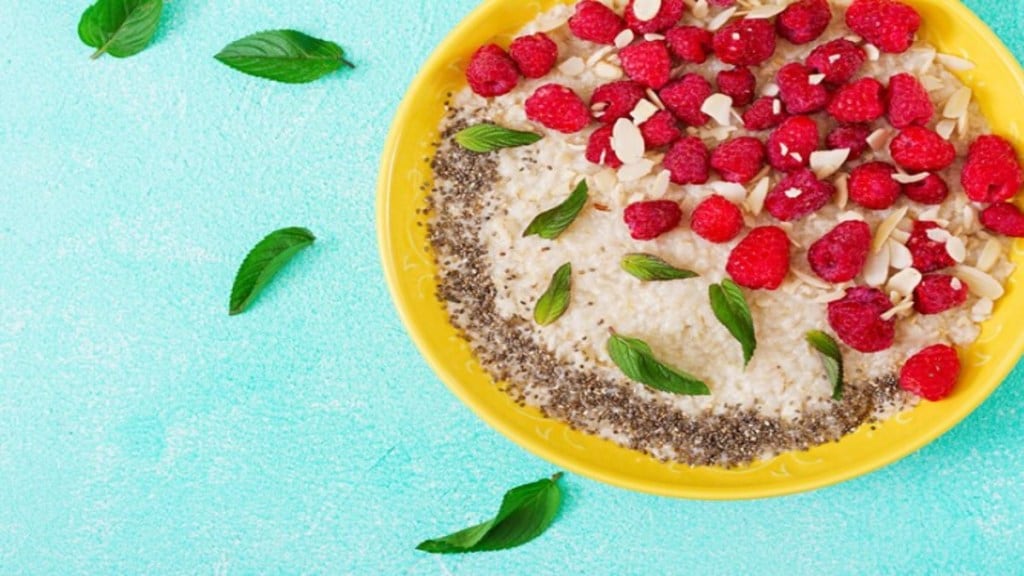Chia seeds are a big rage and are considered highly nutritious plus aiding weight loss. But how true is this? Kanika Narang, deputy manager, dietetics department, Indraprastha Apollo Hospitals, says, “Chia seeds have undeniably garnered significant popularity due to their impressive nutritional profile. Packed with fibre, protein, and omega-3 fatty acids, they offer a range of health benefits. They are rich in fibre, containing about 10 grams per ounce, which can help lower cholesterol levels and support heart health. The fibre in chia seeds can also promote satiety, leading to weight loss. Additionally, chia seeds are a good source of protein, containing about 5.6 grams per ounce, which can help build and repair muscles. Chia seeds also contain omega-3 fatty acids, specifically alpha-linolenic acid (ALA), which can help reduce inflammation and improve heart health. While it is true that these nutrients can support weight management by promoting satiety and aiding digestion, it is essential to temper expectations. Chia seeds alone are unlikely to induce substantial weight loss. To achieve sustainable weight management, a holistic approach encompassing a balanced diet, regular exercise, and adequate sleep is crucial.
Incorporating chia seeds as part of a healthy lifestyle can certainly contribute to overall well-being, but they should not be considered a magic weight loss solution.
Is their nutritional profile extraordinarily greater than other seeds like sesame, sunflower, etc?
Chia seeds stand out as nutritional powerhouses when compared to their seed counterparts like sesame and sunflower. While all three varieties offer essential nutrients, chia seeds stand out with an exceptional concentration of fibre, protein, and omega-3 fatty acids. This unique combination supports digestive health, heart health, and satiety. Sesame seeds impress with their protein content and mineral profile, particularly calcium and iron, essential for bone health and blood production. Sunflower seeds contribute a hefty dose of vitamin E, a potent antioxidant, alongside healthy fats and protein. While each seed offers distinct nutritional advantages, chia seeds have exceptional omega-3 content and fibre content that solidifies their position as a top choice for those seeking to optimise their dietary intake. Incorporating a diverse range of seeds into your diet ensures a well-rounded nutrient profile.
Do all seeds have the same nutritional profile or is any particular variety most beneficial?
The world of seeds is a treasure trove of nutritional diversity. Each variety offers a unique blend of nutrients that can significantly impact our health. Chia seeds, for instance, are celebrated for their exceptional fibre content and omega-3 fatty acids, which support digestive health and heart function. Flaxseeds boast lignans, powerful antioxidants linked to hormone balance and potential disease prevention. Sunflower seeds deliver a potent dose of vitamin E, a shield against oxidative stress. Sesame seeds are rich in calcium and other essential minerals for bone health. And let us not forget pumpkin seeds, packed with magnesium and zinc for optimal brain function and immunity. By incorporating a variety of seeds into our diet, we unlock a synergistic blend of nutrients that contribute to overall well-being and vitality.
Are seeds fattening?
Contrary to popular belief, seeds are not fattening. In fact, they are a nutritional goldmine packed with healthy fats, fibre, and protein. These essential nutrients contribute to satiety, helping to regulate appetite and prevent overeating. Research indicates that incorporating seeds into a balanced diet can aid in weight management by promoting fullness and reducing overall calorie intake. The fats found in seeds are primarily unsaturated fats, which are beneficial for heart health and can even support weight loss efforts.
Seeds like chia, flax, and hemp, rich in fibre, protein, and healthy fats, can help control appetite and manage weight. Additionally, the omega-3 fatty acids present in some seeds have anti-inflammatory properties that can positively impact metabolic health. However, moderation is key.
While seeds offer numerous health benefits, excessive consumption can lead to calorie surplus. By enjoying seeds as part of a well-balanced diet and being mindful of portion sizes, you can harness their nutritional power without worrying about weight gain.

